
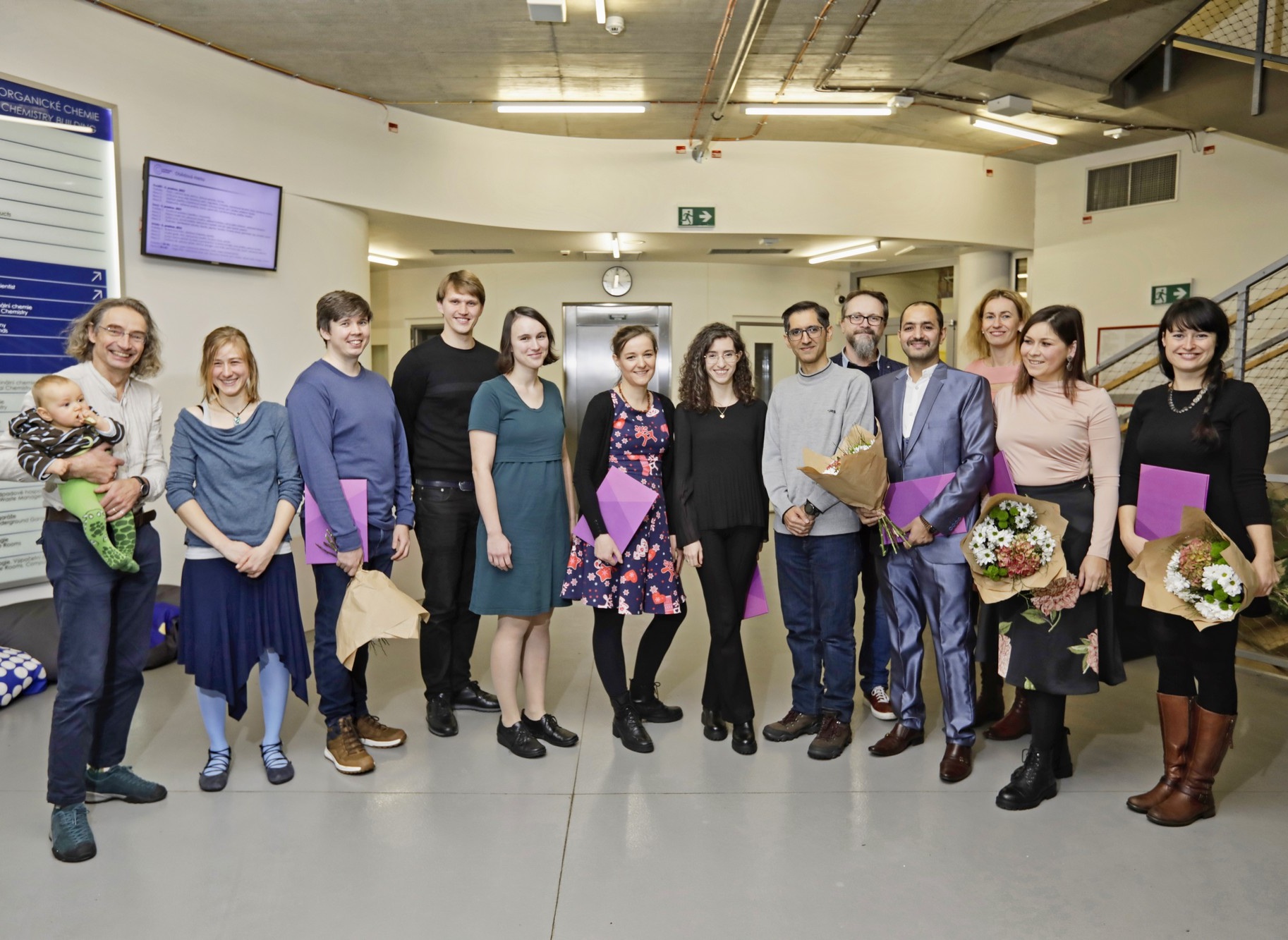
Recipients of the Martina Roeselová Memorial Fellowship with the organizers (Photo: Libor Fojtík)
A grant of 150,000 Czech crowns is awarded to postgraduate students and postdoctoral researchers working in the field of natural sciences at universities and non-university research institutions in the Czech Republic who are simultaneously caring for a preschool-aged child. The financial support is intended to cover childcare services, allowing scientists to continue their studies or research at the beginning of parenthood without losing touch with global science.
“Successful juggling of cutting-edge science and parenthood is the dream of many, but only a few achieve it. To increase the chances of making this dream a reality, we provide grants to young researchers to help them remain excellent parents while continuing to actively pursue their own research,” explains Barbara Eignerová, chairwoman of the IOCB Tech Foundation managing board.
The Martina Roeselová Memorial Fellowship commemorates the memory of internationally recognized scientist Martina Roeselová of the Institute of Organic Chemistry and Biochemistry of the Czech Academy of Sciences, which is where the fellowship was established. It has been awarded since 2016, and to date thirty-five young researchers from various Czech universities and research institutions have received it, including Dr. Kateřina Sam of Biology Centre CAS, a later recipient of an ERC Starting Grant, and Dr. Lenka Gahurová, the recently appointed head of the Developmental Epigenetics and Bioinformatics Laboratory at the Faculty of Science, University of South Bohemia.
“It kind of takes my breath away to see how, thanks to the support of the foundation, the Martina Roeselová Memorial Fellowship has gone from humble beginnings to something that helps dozens of young researchers combine scientific work with care for preschool children,” says the fellowship’s founder and coordinator of the evaluation committee, Prof. Pavel Jungwirth. "I’m thrilled that the recipients are not only mothers but also fathers and that the quality of the applications is getting better and better, even though that does, of course, make it harder for us to choose. I believe Martina is looking down on our efforts from her scientific heaven with a compassionate smile and is, perhaps, pleased.”
The recipients of the 2024 Martina Roeselová Memorial Fellowship are:
Eva Bártová (Faculty of Science, University of Ostrava)
Eva Bártová is a PhD student at the Faculty of Science, University of Ostrava, in the field of environmental geography. At the same time, she is a mother of three children. In her work, she investigates the influence of land reform (Raabization) on the Moravian landscape from the end of the eighteenth century. She reconstructs the past landscape and compares it with the current state. So far in her research she has focused on the areas of Moravská Bráná and Haná. At these locations, she plans to perform a landscape-ecological analysis of the current and past state and find connecting elements in the past and current landscape. Thanks to the support of the grant, she can travel abroad for an internship with her children, where she can combine parental care with her research.
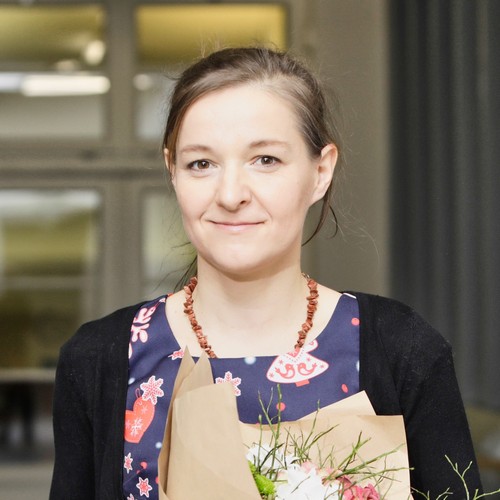
Michaela Capandová (Faculty of Medicine / Institute of Computer Science, Masaryk University)
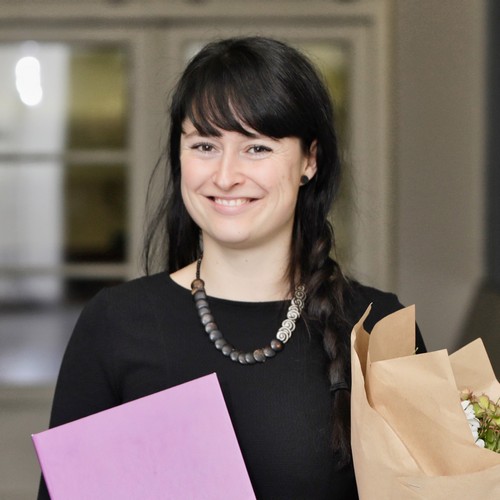
Michaela Capandová is a PhD student at the Department of Histology and Embryology, Faculty of Medicine, Masaryk University, and mother to a three-year-old child. She is active in the interdisciplinary field of biomedical sciences and scientific data management. During her doctoral studies, which have been interrupted by motherhood, she focuses on the development of cellular elements and biomaterials for lung tissue engineering. Now, her enthusiasm for open and responsible science, which was recognized with an ORION grant, is making an impact at the Institute of Computer Science, Masaryk University, where she is involved in the implementation of the European Open Science Cloud (EOSC) in the Czech Republic. One of her goals is to advance biomedical research in relation to FAIR principles (Findable, Accessible, Interoperable, and Reusable) and to apply the ideas of open science to her own scientific data.
Suada Djukaj (Faculty of Chemical Engineering, UCT Prague)
Suada Djukaj, originally from Kosovo, is a PhD student at the University of Chemistry and Technology, Prague, in the Chemical Robotics Laboratory and mother to a three-year-old son. She focuses on developing artificial mucus – a hydrogel covering the wall of the gastrointestinal tract. The mucus acts as a selective barrier to foreign microorganisms as well as drug particles. While animal models assess drug absorption, they often differ from human clinical trials. To address this, Suada is trying to design artificial mucus that closely resembles natural human mucus, potentially serving as a predictive tool during drug development. Her project is undertaken in close cooperation with the Pharmaceutical Applied Research Center (The Parc).
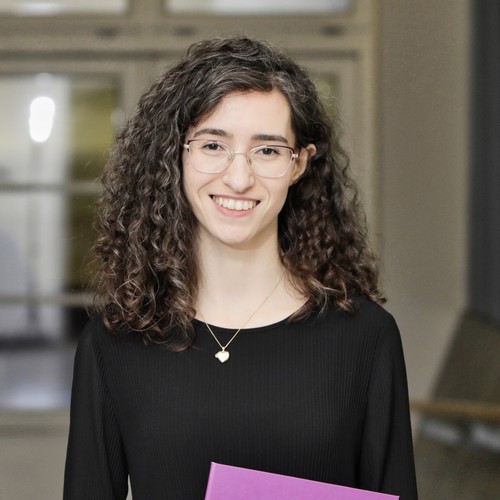
Martina Greplová Žáková, Ph.D. (ELI Beamlines)
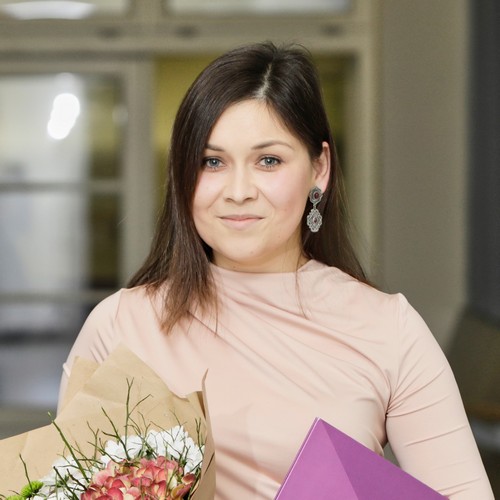
Martina Greplová Žáková, PhD, is a graduate of the Faculty of Nuclear Studies and Physical Engineering at the Czech Technical University in Prague, where she received a master’s degree in physics and technology of thermonuclear fusion and a doctorate in physical engineering. She has worked in a scientific environment since her bachelor’s studies, specifically at ELI Beamlines. Here, she developed professional skills in numerical particle-in-cell simulations of a laser pulse interaction with matter and the subsequent acceleration of ions. In her work, she uses supercomputers, numerical mathematics, and plasma physics theory. Her simulations support the optimization of the accelerated particle beam parameters, thus having potential in many interdisciplinary applications, e.g. in medicine, chemistry, biology, and nuclear physics but also in nondestructive heritage testing. She is mother to two-year-old identical twins Jéra and Nik.
Jana Junová (Faculty of Mathematics and Physics, Charles University)
Jana Junová is a second-year PhD student in a program focused on econometrics at the Faculty of Mathematics and Physics, Charles University, and mother to two daughters ages five months and two years. Her research involves problems related to decision-making under uncertainty, which arise in situations lacking precise information about the future. She specifically focuses on an area where there is a need to mathematically describe the preferences of large groups of decision makers simultaneously. This can be quite complicated in practice, and it is even possible that there is no best decision for the entire group. Therefore, she focuses on generalizing this concept, which allows the mathematical description of preferences for both narrower and wider groups of decision-makers than previously employed methods. She uses tools of stochastic and robust optimization for this purpose.
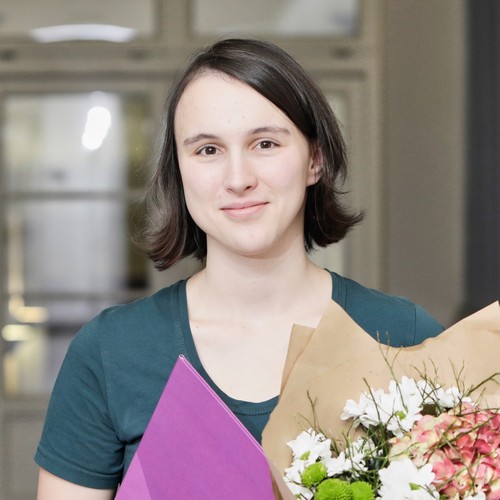
Mykhailo Khytko (Faculty of Mathematics and Physics, Charles University / Institute of Physics, CAS)
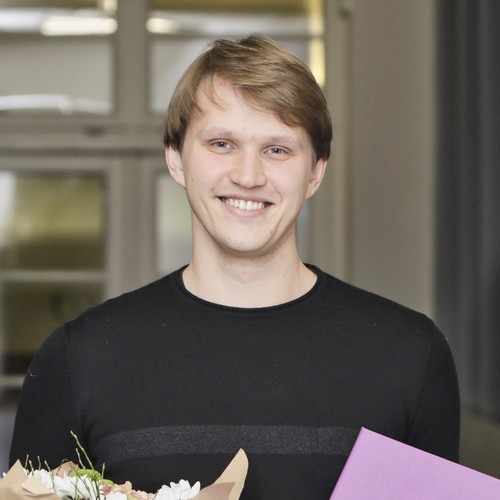
Mykhailo Khytko, originally from Dnipro in Ukraine, is a second-year PhD student at the Faculty of Mathematics and Physics, Charles University. He is doing his research at the Institute of Physics of the Czech Academy of Sciences in the Department of Thin Films and Nanostructures. He is also father to a two-year-old son. His passion is solar energy, from fundamental research on perovskite materials using atomic force microscopy to the engineering of industrial-scale ground-mount photovoltaic systems and feasibility studies of energy projects. In addition, he oversees the construction of a meteorological test station to record full spectra of weather data relevant to the simulation of PV panel performance simulations in real-life conditions. As he says, however, his most important job is his 2-year-old son, Mark. Being a responsible father, he is doing his best to ensure his son is happy and thriving as he grows up in the Czech Republic.
Ali Masihi (Faculty of Science, Charles University)
Ali Masihi is a seasoned geophysicist, data analyst, and programmer. He is currently a researcher and PhD student at the Institute of Hydrogeology, Engineering Geology, and Applied Geophysics, Faculty of Science, Charles University. He also has a five-year-old child. Balancing his academic pursuits with the responsibilities of single parenthood, Ali works on a project titled Seismic Velocity Variations Accompanying Shallow Magmatic Dyke Activity, which aims to analyze seismic wave velocity changes during earthquake swarms, unraveling correlations with magma intrusion beneath volcanic regions. Interpretation of the observed velocity changes sheds light on magma accumulation and dyke propagation, offering potential for forecasting volcanic activity. Ali's research centers on the Fagradalsfjall volcano in Iceland, which has experienced recent eruptions.
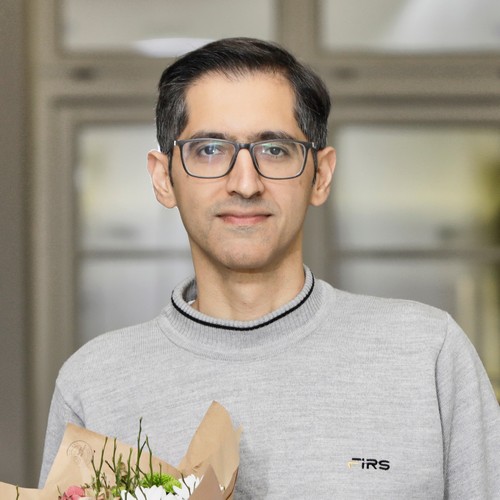
Tereza Novotná Jaroměřská (Faculty of Science, Charles University)
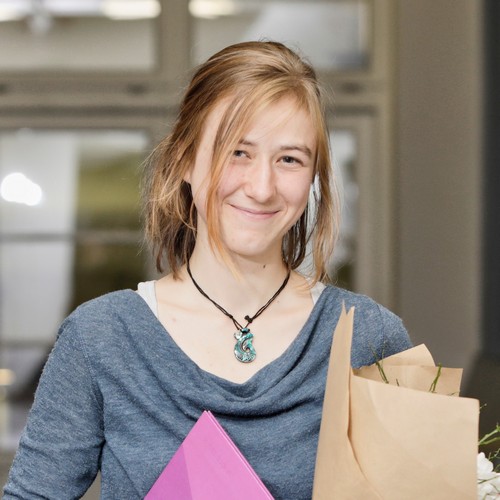
Tereza Novotná Jaroměřská is a PhD student at the Department of Ecology, Faculty of Science, Charles University, and mother to two young boys (ages seven months and two years). She studies the ecology of glacier surfaces, primarily focusing on the stable isotopic and elemental composition of glacier microinvertebrates (tardigrades and rotifers), which inhabit small water-filled depressions on glacier surfaces. She wants to shed light on their position in the food web of these pools and their contribution to nutrient cycling on the glacier surface. With her colleagues in geology, nuclear physics, and other scientific fields, she is developing new methodological approaches for “quick and easy” elemental analyses of microinvertebrates for ecological studies. As she says, she is grateful she can share her love of science with her beloved family, who still willingly accept her crazy ideas.
Veronika Prozorova (Faculty of Nuclear Sciences and Physical Engineering, CTU Prague)
Veronika Prozorova is a PhD student at the Faculty of Nuclear Sciences and Physical Engineering, Czech Technical University in Prague. Together with her husband Alexandr, who is also a scientist and an early postdoc at CTU, they are raising a 2-year-old child. Veronika is involved in STAR, a major physics experiment at Brookhaven National Laboratory, USA, which is investigating the nature of the very early stages of the universe. Her current scientific work involves the study of electrons from open heavy-flavor hadron decays in heavy-ion collisions, aiming to provide more information about the interaction of heavy quarks with the QGP medium. Veronika's responsibilities include teaching younger students, assisting in the organization of scientific workshops, and engaging in activities related to the popularization of physics. Additionally, she participates in large conferences on behalf of the STAR collaboration.
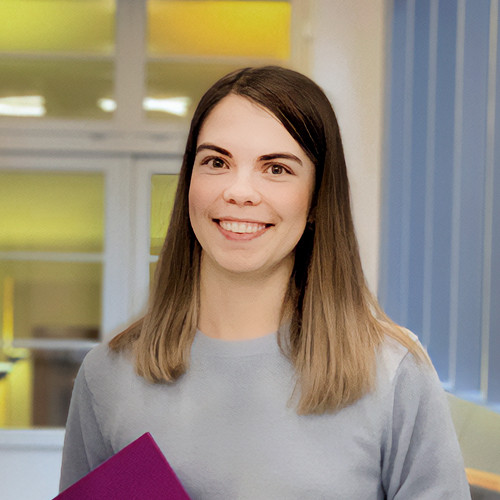
Waheed Ur Rahman, Ph.D. (Institute of Microbiology, CAS)
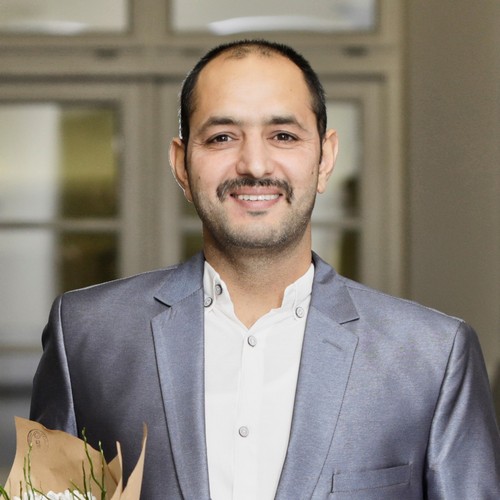
Waheed Ur Rahman is an early-career postdoctoral researcher from the district of Charsadda in northwestern Pakistan. In 2023, he completed his PhD in microbiology at the Faculty of Food and Biochemical Technology, University of Chemistry and Technology, Prague. Since 2017, he has been a researcher at the Institute of Microbiology of the Czech Academy of Sciences. Here he works alongside his wife Humaira, a PhD student, with whom he is raising their two children, ages one and a half years and three years. In his research, he focuses on the molecular biology of bacterial pathogens, unraveling the mechanisms of action of different bacterial virulence factors, such as Bordetella pertussis, which causes whooping cough, or Kingella kingae, which is linked to child infections such as septic arthritis, and Bacillus anthracis, a lethal threat causing anthrax.